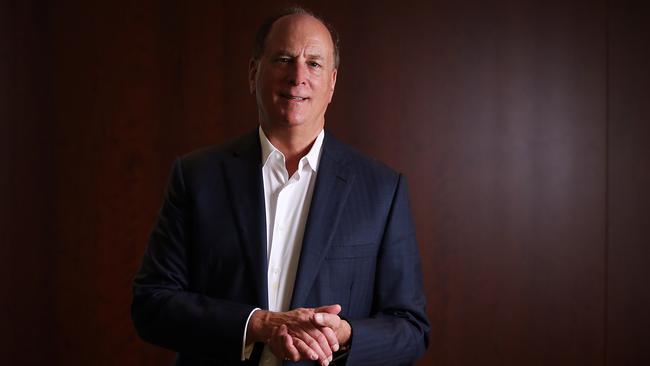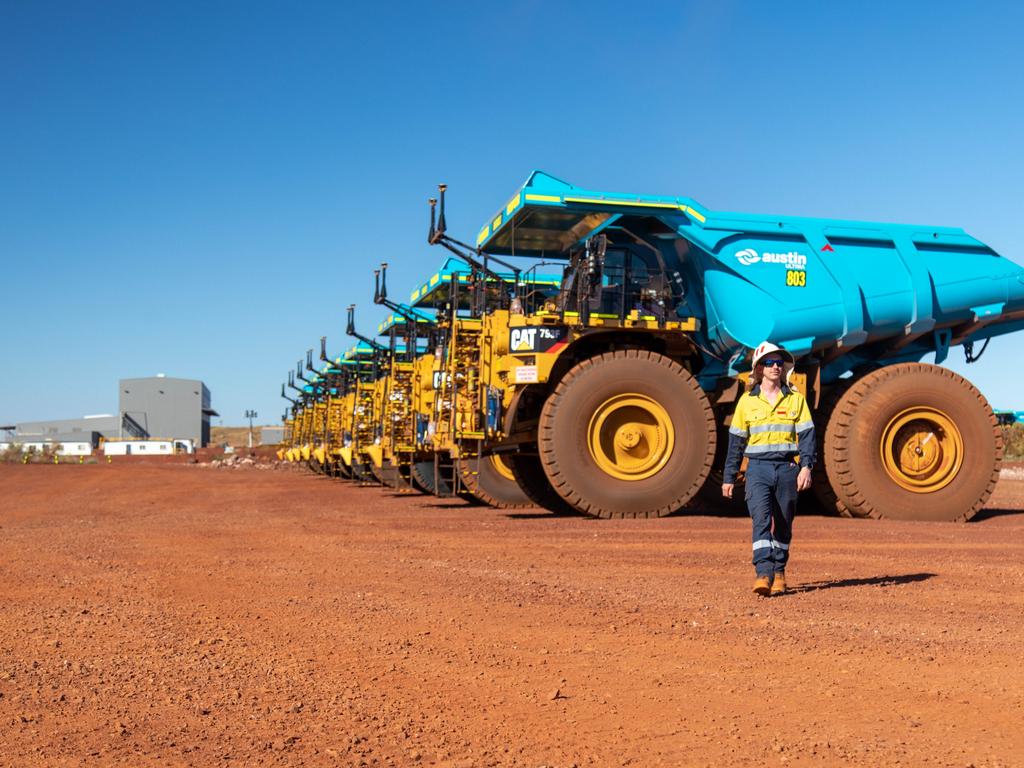Big business becoming ‘environmental police’: Larry Fink
The world’s most powerful investor urges governments to spread the load of transitioning to a net-zero emissions global economy.

Banks and large public companies risk becoming the “environmental police” of the green economy unless governments spread the load of transitioning to a net-zero global economy, according to the world’s most powerful investor Larry Fink.
Mr Fink, chairman and chief executive of the $US10 trillion ($13.4 trillion) asset manager BlackRock, said all of society needed to take responsibility for dealing with the existential threat posed by climate change.
“I’m absolutely confident we’re going to be able to solve this, but are we going to be doing it in time with the speed that is necessary?” he told a virtual environmental, social and governance conference hosted by Credit Suisse.
“The last thing I would say as we move to COP26 (the United Nations climate conference in Glasgow at the end of this month) is that it can’t be just the public companies and the banks – it has to be all of society.
“Right now, it appears that governments are pushing the public companies and the banks – we’re going to have new (financial) reporting regimes.
“What I’m worried about is that we’re going to be making the banks and public companies environmental police, which will create more polarisation between large companies and small companies and we won’t get to a net-zero world.”
Mr Fink became a passionate advocate for the climate change cause early last year, electing to dump shares in thermal coal companies from all of BlackRock’s actively managed funds.
The world’s biggest asset manager began incorporating the impact of a warming planet into its capital market assumptions in 2021. In his annual letter to CEOs earlier this year, Mr Fink said the “tectonic shift” towards sustainability-focused companies was accelerating due to the pandemic.
Climate risk was investment risk, he said, and when finance really understood a problem, it responded by bringing the problem forward.
BlackRock was therefore asking companies to disclose how their businesses would be compatible with a net-zero economy.
Mr Fink said on Wednesday that an urgent response was required to limit global warming to a sustainable level.
“I think we should all recognise there’s an urgency here, like the urgency of finding a vaccination (for Covid-19),” he said.
“Let’s be very clear, the changing climate is going to have a real impact on health and wellbeing and on many segments of society. I am totally convinced the private sector is willing to do its part, and I’m so convinced that the amount of capital seeking the opportunities is real and very abundant.
“What we now need is to get the public sector – governments – to be focused on this.”
The BlackRock chief said the world was waking up to the existential threat posed by climate change, just as it had with Covid-19. Similarly, large sums of money were going to be invested in new technological solutions – and some would work, but others would not.
“But I do believe through that process we’re going to accelerate the opportunities to attain a green world,” Mr Fink said.
“We could have a green world today but it would be highly inflationary.
“We could abandon hydrocarbons today, which I’m not recommending, by going into more wind, solar and hydro, but in most cases it would be very expensive. We could do green hydrogen now, but very expensively.
“So the key is bringing down the green premium; finding technology so we can move forward to a more sustainable world without disrupting most of society. I don’t believe most societies could be sustained with horrific inflation.”
Mr Fink said that, also like Covid-19, climate change could exacerbate inequalities in wealth and create divisions.
Access to healthcare caused a divide in the pandemic, which was widened by those who had invested in financial assets or hard assets such as property.
Monetary stimulus had actually hurt savers, as interest rates plunged to zero.
“So this has created a real disequilibrium in the world today,” Mr Fink said.
“The developed countries with access to vaccinations are much further along than the developing countries, and we’re seeing even greater disparity between the developed world and the developing world.
“So as good as we feel as participants in the global capital markets, we should all be reminded that the entire world is not participating.
“If you overlay that with climate risk, that is going to create even more of a disequilibrium, because most of the developing world is around the equatorial part of the world, and the equatorial part of the world is going to feel the most severe impact of climate change.”






To join the conversation, please log in. Don't have an account? Register
Join the conversation, you are commenting as Logout